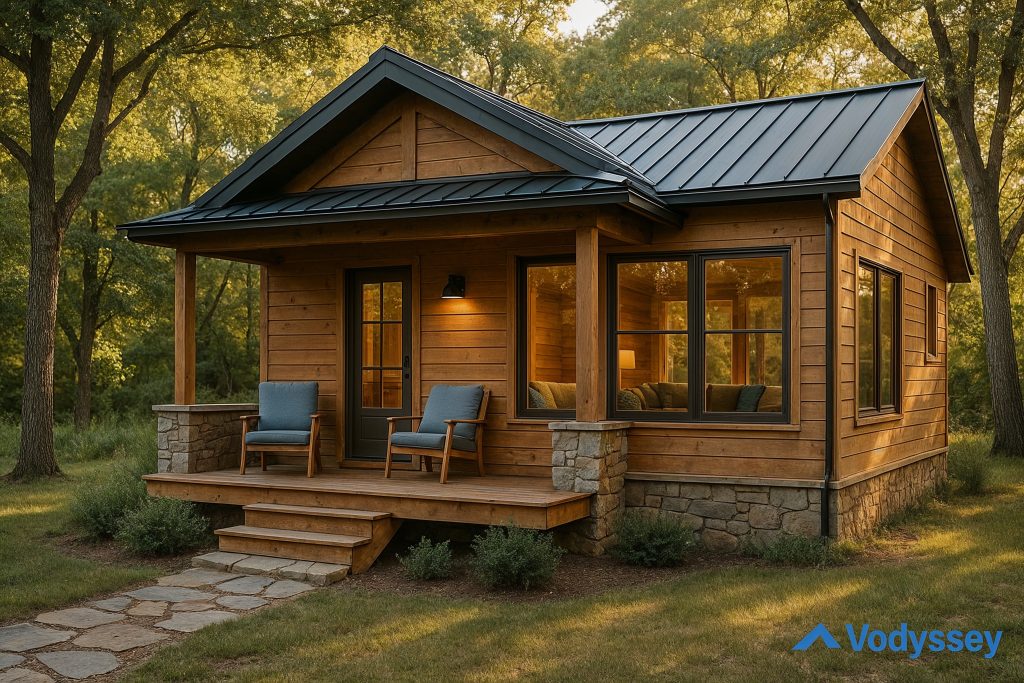Financing Options for Vacation Homes: Your Step-by-Step Guide from Beginner to Pro

Embarking on your journey to own a vacation home is one of the most rewarding financial moves you can make. But for most aspiring investors, the question isn’t if they should buy—it’s how to finance a vacation home in a way that supports both lifestyle and financial freedom. Whether you’re a beginner exploring your first property or leveling up your investment game, understanding the right financing options for vacation homes is key to building your portfolio the smart way.
Understanding the Basics: Why Financing Strategy Matters
The path to owning a vacation home is not one-size-fits-all. Each buyer’s financial picture, goals, and property type shape the best financing option. By mastering the fundamentals and advanced strategies, you can avoid costly missteps and confidently scale your Lifestyle Asset portfolio.
Main Categories of Financing Options for Vacation Homes
Nearly all vacation home buyers fall into one of three major financing routes. Let’s break down each, from beginner-friendly to strategies favored by the pros:
1. Traditional/Conventional Loans
For first-time buyers, conventional loans are often the most approachable. These loans are similar to those for primary residences and are widely used for second homes and investment properties.
- Down Payment Requirements: Typically 10-20% for vacation/second homes; investment property loans may be 20-25%.
- Best For: Buyers with strong credit, stable income, and low debt-to-income ratios.
- What to Know: Lenders usually won’t count projected rental income for qualification until you’ve owned the property for at least a year. Qualification is based on your personal income and full documentation (tax returns, pay stubs, assets, etc.).
- Pros: Generally lowest interest rates and best terms available.
- Cons: Harder to scale quickly, since you’ll need to qualify for each loan based on your personal finances.
Using Your Existing Home Equity
- HELOC (Home Equity Line of Credit): Tap into the equity in your primary residence to fund your vacation home purchase or down payment. Use as much or as little as you need, paying interest only on what you draw. Flexible and can be used for setup, furnishings, or upgrades.
- Cash-Out Refinance: Refinance your home, take out a lump sum, and use this for your vacation property investment. This replaces your primary mortgage with a new one.
Both options allow you to leverage your current assets, but it’s essential to understand the risks and ensure you’re not overextending your finances.
2. DSCR and Asset-Based Loans: The Pro’s Choice for Scaling Fast
As you expand into multiple vacation homes, traditional loans may become limiting. Enter Asset-Based or DSCR (Debt Service Coverage Ratio) loans, designed for investors focused on the property’s income potential:
- How They Work: The primary qualification is the property’s projected income, not your personal income.
- Down Payments: Typically 20-30% of the property price.
- Lending Criteria: Lenders look for a DSCR of 1.2 or higher (meaning the property’s expected income is at least 1.2 times the annual mortgage, tax, insurance, and HOA costs).
- Best For: Self-employed individuals, investors with significant assets, or anyone looking to acquire multiple properties.
- Pros: No need for personal income verification or tax returns; can be held by a corporate entity; ideal for scaling up a portfolio.
- Cons: Higher interest rates (often 1.5-2% above conventional loans), higher down payment, and lenders’ underwriting criteria can vary widely.
Pro Tip: Always compare multiple DSCR lenders, ask about recourse vs. non-recourse, reserve requirements, and whether the loan impacts your personal credit.
3. Private Lenders and Creative Financing
For unique situations and rapid flexibility, private lending opens up a world of possibilities:
- Sources: Private individuals, family offices, hard money lenders, crowdfunding platforms, investors, and more.
- Terms: Highly flexible, often logic-based rather than strict formulas; can include both debt and equity arrangements.
- Best For: Investors needing fast closes, deals that don’t fit standard lending criteria, or those looking for a financial partner rather than a traditional lender.
- Pros: Speed, flexibility, can tailor terms to your specific deal, and may include equity partnerships (not just debt).
- Cons: Typically higher rates/fees, and you must build relationships early—don’t wait until you need funding.
If you’re exploring private lending, focus on building your network now. Many deals are relationship-driven, and trust is key.
Other Options and Advanced Considerations
- Self-Directed IRAs: Some investors use retirement funds for real estate. There are strict IRS rules, so work with a pro.
- SBA Loans: Under certain conditions, if your vacation home has a business component, you may qualify for a Small Business Administration loan.
- Check Property Type: Condos in vacation markets may be ‘non-warrantable’—many lenders won’t finance them. Always clarify with your lender up front.
How to Choose the Right Financing Option for Your Goals
- Assess Your Financial Position: Know your credit score, available down payment, and debt-to-income ratio.
- Define Your Investment Goals: Will you use the property personally, or is your goal maximizing cash flow and scaling?
- Plan for Setup Costs: Budget 8-12% of the purchase price for furnishing and 3-6 months of reserves for initial expenses and startup period.
- Build Your Team Early: Work with a lender who specializes in vacation rentals and a realtor who knows your target market.
From Beginner to Pro: Level Up with Vodyssey
The right financing option for your vacation home is out there—whether you’re just starting out or ready to take your portfolio to the next level. At Vodyssey, we empower investors to achieve both lifestyle and financial freedom through proven strategies, expert partners, and a clear game plan.
Ready to take the next step?
Schedule a complimentary call with a Vodyssey vacation home investment pro today and get personalized answers on the best financing options for vacation homes for your unique situation. Schedule a call with this link.
